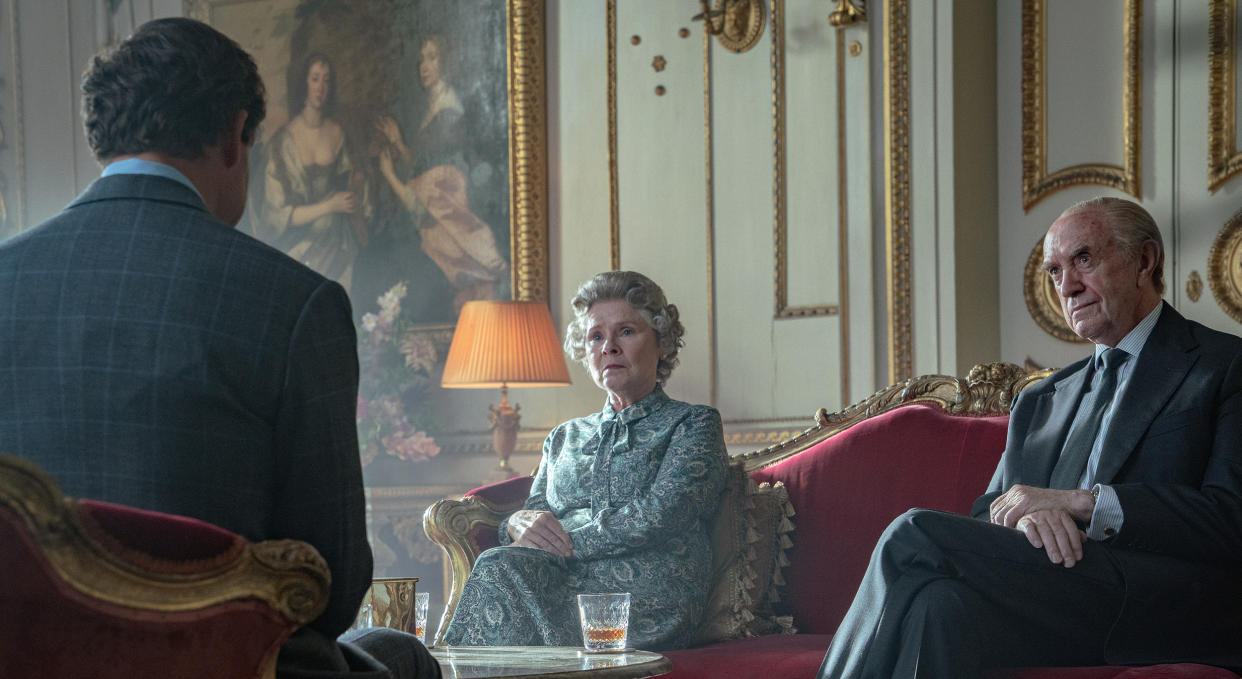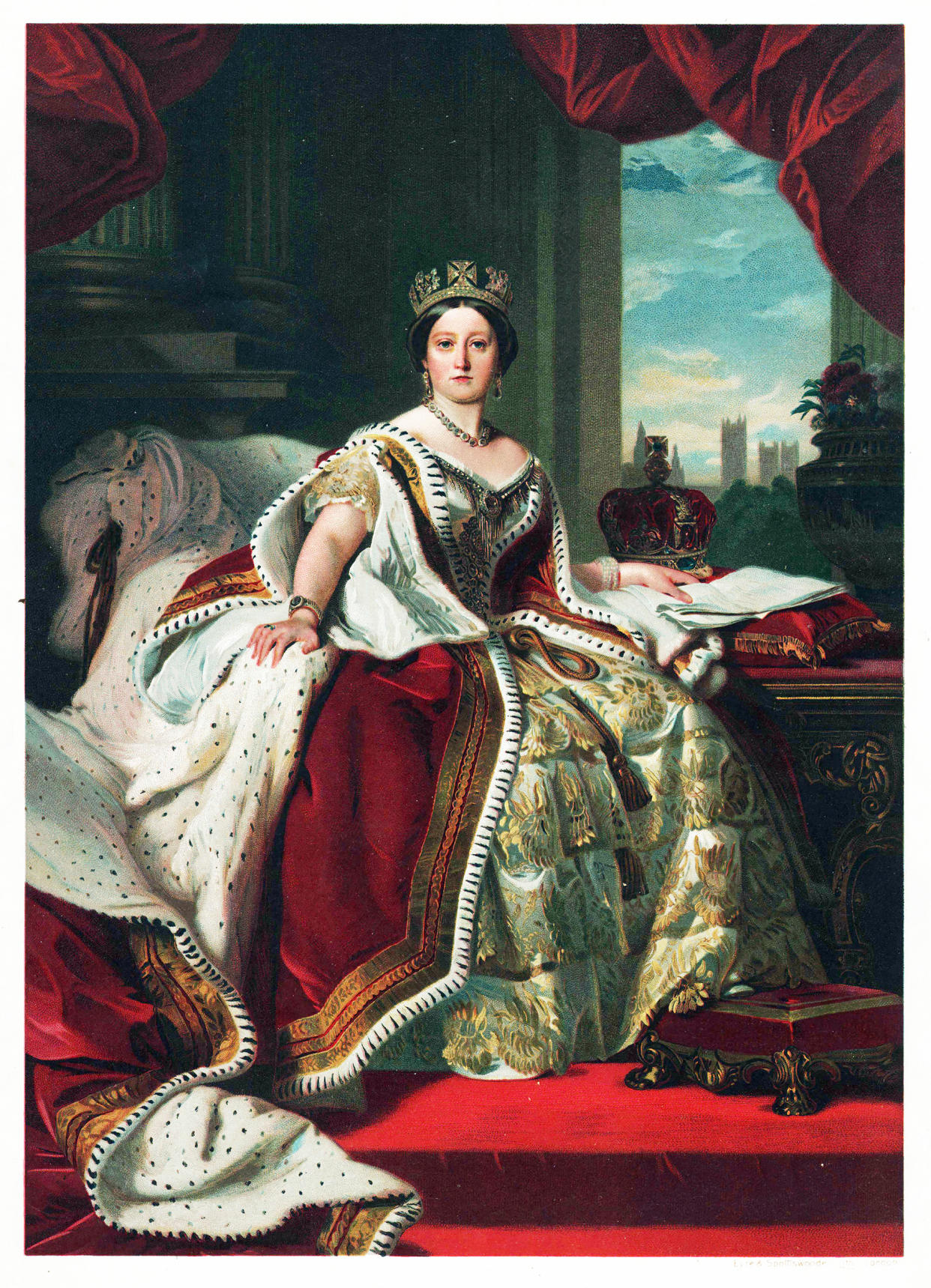'Queen Victoria Syndrome' In 'The Crown,' Explained
As “The Crown” steps into the 1990s, we find the British royal family facing monumental challenges — Prince Charles and Princess Diana’s marriage has fallen apart, and the public’s perception of the monarchy seems to be shifting.
Season Five of the Netflix drama opens with an episode called “Queen Victoria Syndrome,” a phrase suggesting that Queen Elizabeth II, portrayed this season by Imelda Staunton, was growing unpopular as her reign drew on in the early ‘90s.

The phrase first crops up in the episode when Prince Charles (Dominic West) reads aloud a supposed quote from a newspaper article.
“Queen Victoria Syndrome? Yes, I saw that,” he says, scanning a copy of the U.K.’s Sunday Times.
“An aging monarch, too long on the throne,” he continues, reading from the article, “whose remoteness from the modern world has led people to grow tired not just of her, but of the monarchy itself.”
Here's the true story behind that article.
What is ‘Queen Victoria Syndrome’?
“Queen Victoria Syndrome” refers to a monarch staying on the throne despite being unpopular.
The phrase has its roots in the long reign of Queen Victoria — Queen Elizabeth's great-great-grandmother — who ruled the United Kingdom of Great Britain and Ireland from 1837 until her death in 1901.
Speaking to NBC, royal expert Ingrid Seward characterized her as an "invisible queen," especially after the death of her husband Prince Albert.
“When her husband died she didn’t do anything. She didn’t see anyone. She became the invisible queen until way...towards the end of her reign," Seward said.
By the end of her 63-year-old reign, Victoria had grown reclusive and unpopular, and there were calls for her to abdicate the throne in favor of a younger monarch.

Some royal insiders reportedly used the phrase to describe Queen Elizabeth’s reign by the late 1980s, according to royal commentator Sarah Gristwood.
“By the end of the decade courtiers had begun to talk about QVS or the Queen Victoria Syndrome, whereby a nation could become tired of an aging monarch and a parasitic royal family,” Gristwood wrote in a 2016 piece for Huff Post.
Was Queen Elizabeth actually unpopular in the 1990s, like 'The Crown' shows?
"The Crown" seems to have taken a few liberties when it comes to portraying newspaper reports about Queen Elizabeth’s popularity.
In the first episode, a Sunday Times newspaper dated Aug. 11, 1991, is shown with the headline, “Queen Should Abdicate in Favour of Prince of Wales.”
The show claims that this article included the results of a poll in which members of the British public called the queen “irrelevant,” “old” and expensive.”
In the show, the poll finds that “almost half” of the British public would support the early abdication of Queen Elizabeth so that the former Prince Charles, now King Charles, could take the throne.
In fact, this supposed Sunday Times poll was “fictitious,” royal biographer Hugo Vickers wrote in the Sunday Times this week.
“There was no poll in the August 11, 1991, edition of The Sunday Times portrayed in ‘The Crown,’” he wrote. “The only reference to the queen that popped up in that edition was to ‘the undisputed Queen,’ and this was in an ad for the cruise liner Queen Elizabeth 2.”
He noted that the Sunday Times did publish a public opinion poll about the royal family the previous year in January 1990, but that “crucially, far from being out of touch, the poll was largely pro-monarchy."
That earlier poll found that nine out of 10 people felt "favorably" or "mainly favorably" about the queen, Prince Charles, and the Queen Mother.
The 1990 Sunday Times article did report that "nearly half" of people polled had "sufficient faith in Charles to believe that the Queen should abdicate at some stage to make way for him," but there did not seem to be an outright cry for the queen's abdication, as "The Crown" seems to suggest.
The real 1990 Sunday Times article begins, "Despite assaults by the tabloid press and a decade of intimate scrutiny, the royal family enters the 1990s as a remarkably popular part of British life."
Did Prince Charles actually try to step up to the throne in the 1990s?
In a scene from “The Crown" this season, Prince Charles and then-British Prime Minister John Major discuss the possibility of Queen Elizabeth abdicating so that Charles can take the throne — a conversation apparently prompted by the queen’s unpopularity in the public eye, or her “Queen Victoria Syndrome.”
Representatives for Major, now 79, who served as prime minister between 1990 and 1997, called these scenes “damaging and malicious fiction.”
“There was never any discussion between Sir John and the then Prince of Wales about any possible abdication of the late Queen Elizabeth II — nor was such an improbable and improper subject ever raised by the Prince of Wales (or Sir John),” the spokesperson told The Guardian last month. “Neither Sir John nor (his wife) Dame Norma have discussed the monarchy remotely in these terms.”
“The Crown” has faced backlash for its handling of the royal family’s story this season, especially as the events of the series inch closer to the present day.
Netflix has since added disclaimers to the series, calling it a“fictional dramatization” and “inspired by real-life events.”
This article was originally published on TODAY.com
